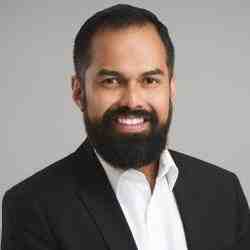Introdução
As internet access continues to grow in India, Apar in ensuring that accountability and action, towards ensuring fundamental rights continues to be met. In doing so, Apar is creating a model for digital rights advocacy in the country that is driven by the public, for the public.
A nova ideia
Apar is creating a model for digital rights advocacy in India that bridges the gap between the public and public policy and moving towards outcome-based advocacy that works with policy-making institutions such as courts, parliaments, government offices and regulators. In doing so, Apar is ensuring that Indian’s across all parts of the country are able to have their rights and freedoms protected and enhanced as technology continues to grow.
By channelling existing bodies of research and capacities of existing institutions, Apar is taking a completely public centred approach towards digital rights. By first sensitising new audiences towards existing risks and their fundamental rights and then working with the public to create long term strategies for institutional outcomes, Apar is for the first time organisationally through the Internet Freedom Foundation activating opportunities for digital rights to be advanced based on a bottom-up approach that is sustainable and creates long term systemic impact. Through the use of creative mechanisms to avoid risks that limit the current ecosystem, such as innovative funding models, social engineering to build a membership organization and also litigation where necessary, Apar is paving an alternative narrative for the Internet to be born that is rooted in hope, enablement and opportunity.
O problema
India currently has the second highest number of Internet users globally, with close to 38% of the population actively participating and only just lagging behind China. The Digital India future has been enabled by progressive government policy, foreign investment, strong engagement from the private sector and citizen organisations and also a high penetration of mobile phone usage, with almost 94% of the population having access. As the frontiers of emerging technology open up new dreams, possibilities and opportunities for ‘Young India’, there also exist risks both current and foreseeable that threaten to derail the constitutional rights and freedoms of the public.
In India today, these risks can be seen in the form of freedom of speech and expression being suppressed, net neutrality being compromised, an alarming number of internet shutdowns, high number of arrests for dissent on the internet, the spread and promotion of fake news (which leads to communal violence and civil unrest), the privacy of private information being breached, growing fears about surveillance, and limits to innovation being presented. According to the ‘Freedom on the Net 2018’ report, India has had the highest number of shutdowns to the internet in the world last year, with a record of 128 shutdowns. This is more prevalent to the people of Jammu and Kashmir than anyone else, with the region experiencing 58 shutdowns in 2019 already. As the historic decision by the Central Government was passed down recently to revoke Section 370 of the Indian Constitution, taking away the independence of Jammu and Kashmir and bifurcating the state into 2 Union Territories, a complete digital shutdown meant that any assent or dissent from the very people this decision would impact was not being heard. The cost of such actions are multifold, often having economic repercussions as shown by a recent report conducted by Indian Council for Research on International Economic Relations (ICRIER), which showed that India lost approximately $3 Billion because of Internet shutdowns between 2012 and 2017 alone.
As well as Internet Shutdowns, centralised government programs such as the compulsory Aadhaar Identification System, which is the largest biometrification identification system in the world, has posed huge threats to the privacy of the very people it should liberate. There have already been over 1 Billion data breaches of sensitive information such as one’s name and address through the platform. Unless digital rights are advanced in line with technology, it is disproportionately those who are marginalized who pay the biggest price, perpetuating a cycle which prevents speech, privacy and freedom of expression to those who have the privilege to afford it.
While there exists a current ecosystem of organisations, individuals and institutions who take a keen eye on digital rights, a number of systemic gaps exist that prevent course actions to be taken. Firstly, due to the perception of risk, there has been a complete lack of existence of organisations that focus on outcome-based advocacy with the goal of long term institutional engagement. These risks include the reliance that most organisations have on foreign funding to operate which often limits their role to mere research and knowledge creation. Many rights-based groups in other domains of work who do campaigning, awareness and try to influence policymaking institutions in India have been limited by the Foreign Contribution Regulation Act (FCRA), which places broad restrictions on the political activism of these organizations. Thus, almost all organisations in this field have compromised and are limited in their roles to create evidence-based research on issues such as privacy or freedom of speech.
While there is a growing level of demand for support when it comes to user rights, there exists a dearth of capacity within existing organisations towards outcome-based activities, such as filing court cases and litigation. As these mainstream concerns start to affect a larger group of people, such a lack of capacity gives the public only the option of using social media as a temporary remedy for advice or for most they are left in complete isolation. This continues the same cycle of vulnerability which ultimately leads to the compromise of constitutional promises for the population.
Finally, there exists cynicism towards political processes to protect constitutional rights but this is often superseded by the real lack of capacity of civil society organisations that is backed by a large constituency of public support which can work with these institutions to keep up with the pace of proposals for regulation etc. Exacerbating this is the fact that a majority of the public do not understand the looming threats that exist as they navigate the internet and more people become users. This is because the existing body of research and knowledge that exists often is either too academic in nature or does not simplify the laws and rights that exist.
A estratégia
Apar is driven by a few core tenets, namely, being sensical to not reinventing the wheel and secondly, believing in the power and necessity for collaboration when it comes to any rights based work. With this and his deeply passionate interest in digital rights, Apar co-founded and presently plays the role of the first executive director of Internet Freedom Foundation (IFF) with a vision towards ensuring that the growing number of Indian’s who are using the internet can have their constitutional rights being met.
Apar takes a three-pronged approach towards achieving this, bridging the gap between the general public and public policy, using innovative financing model(s) to create a bottom-up citizen-driven initiative and lastly channelling advocacy and turning it into institutional outcomes.
Firstly, Apar recognises the importance of using existing bodies of research and understanding public concerns to create strategies for action. Recognizing the limitations of most organizations working on digital rights being either that of 1) Research or 2) Short Term Advocacy, Apar through IFF is leveraging these resources to turn research into outcome-based advocacy, that builds supporter bases across issue-specific domains over a long term. Apar knows that depending on the individual and the context they live in, there can’t be a hegemonic approach to digital rights where everyone will champion everything and hence he creates long term engagement strategies with the public that takes them from knowledge dissemination, skill-building, advocacy, institutional engagement and ultimately favourable rights-based outcomes.
After understanding the queries of the public as well as understanding evidence-based research, Apar creates teams and strategies around four key issues: Privacy, Freedom of Expression, Innovation and Net Neutrality. Apar uses both online and offline methods to grow a constituency base that he engages with from start to finish on these issues. These methods include public events such as seminars in colleges, online chat platforms such as Reddit and also targeting employees in large technology companies with a focus on homegrown start-ups who are the innovators of technology to champion digital rights. The incentive for the public to come on board is many-fold but strongly rooted in a clear policy goal that IFF is working towards. In order to generate interest from newer and previously disengaged audiences, Apar uses online media (for example Reddit) and methods such as satire, humour and videography to explain key concepts, risks and explain digital rights to people in a way that is easy to understand, relevant and jargon-free.
Apar has chosen to take on a funding structure to run IFF that completely differs from all other organisations in this sector in India, by not taking foreign funding. True to his idea being rooted in public constituencies having a voice, Apar has generated a membership structure with tiers that are aimed at building long term and sustained engagement with interested members of the public. This approach has a number of advantages, firstly there is an element of freedom to be creative and come up with strategies that are outside of the box that traditional institutional funders might not give the flexibility for. Secondly, because the funding is all domestic and comes from a diverse spectrum of the public, there is no limitation to what levels of institutional advocacy can be done (through parliament, regulators etc) or how it is done (petitions to elected representatives, litigation through courts etc). Apar uses creative means to engage his growing membership base, including the inclusion of members to take part in the workflows of the organisation through platforms such as discussion forums, regular quarterly calls on updates, strategies and impending challenges (where all the leadership of his organisation join the calls) while also using social engineering to constantly keep members excited. The impact of engaging members and volunteers so closely with the organisation's activities creates a multiplier of digital rights activists in the country over time.
After building the communities for public action, IFF undertakes strategic campaigns on the various thematic areas the organisation has expertise on. These campaigns which are public facing, utilize powerful tools such as explainers, media, video infographics and offline methods to engage public audiences. So far IFF has been able to support 5 large campaigns on issues ranging from Net Neutrality, Privacy and Freedom of Speech. Once these campaigns are launched, it is important for IFF to go into institutional engagement with a strong public backing so tools such as petitions that generate larger public audience are used to show that it is an issue of public interest and not of IFF.
To finish the loop, there are a number of engagement strategies that are used to engage policy-making institutions, including consultations, drafting policy and also litigation wherever needed. IFF with its membership strategizes what the best course of action would be depending on the campaign and then starts its engagement. For example, IFF supported the online campaign Speechbill.in which attempted to repeal criminal defamation and consolidate civil defamation (reforming content laws). The campaign generated over 4000 signatures, both organisational and individual and ultimately led to consultations with MP, Tathagata Satpathy in the Lok Sabha who filed the Protection of Speech and Reputation Bill, 2017 - a clear blueprint for defamation reform in India. This model has been replicated more recently in the SaveOurPrivacy.in campaign to publicly present a draft law for data protection in India. The Draft Indian Privacy Code on SaveOurPrivacy.in has been drafted and commented on by several legal volunteers and members of the public and has resulted in two different versions of bills in the Indian Parliament by MP, Dr. Shashi Tharoor and MP, Dr. Ravi Kumar.
Such public engagement is at the heart of this work and, and draws from a culture that comes from the genesis of IFF, whose founders prior to its creation were responsible for the historic, SaveTheInternet.in campaign in India. This campaign focused on keeping an open and fair internet by making a demand for strong net neutrality protections. With the engagement of over 1 million people, the campaign was successful in pushing the regulatory body, the Telecom Regulatory Authority of India (TRAI) to ban differential pricing for the internet in India. While this was a huge success, SaveTheInternet continues today as an online platform for reporting of a violation of net neutrality rules and a campaign to ultimately force TRAI to devise mechanisms to ensure there is enforcement in place.
Apar has so far been successful in engaging over 110 individual members and 1500 donations to IFF’s mission while also engaging with thousands of members of the public on various campaigns. These numbers grow every month as IFF hires more staff and builds capacity. In a short period since October 2018, IFF made important inroads on a diverse range of issues, including net neutrality, privacy and content laws and continues to implement its long term engagement strategy with policymaking institutions to ensure that fundamental rights of the public are met. Moving forward Apar will continue to establish strong systems and processes that strengthen IFF’s mission while also building the capacity of the ecosystem to fight for digital rights
A pessoa
Apar grew up in an upper-middle-class family in New Delhi where his earliest memories were the activities he took part in school or the time he spent with his mother outside of school, who sacrificed her own professional growth to take care of Apar. During his schooling years, Apar had two major interests that started to define the later years of his life, literature and technology. Some of his fondest memories growing up was building a close relationship with his local bookseller and then bargaining for cheap prices that got him titles on political philosophy and contemporary nonfiction which continued to feed his imagination and personal growth. As well as this, Apar started to get early exposure to technology such as computers, video games and television which also established an intrigue in him. Apar started to find any opportunity that he could to explore this interest with technology, whether it be assembling computers using spare parts, learning how to code, or even navigating the early world of IRC channels. In order to spend more time in front of computers, Apar established the ‘computer club at his school, where he got his first experience of organising and leading a group of people with a common interest.
With a growing interest in social sciences, studying Law was an obvious choice for Apar as it also met his familial expectations of a safe degree with viable career choices. It was during college that Apar excelled away from his lethargic academic results in school, scoring well while also actively taking part in many extracurricular activities. Apar recalls that Moot Court selections, which was a system for clinical practice for aspiring lawyers, was a place where he excelled and did very well. He started as a participant who regularly won the court sessions, to becoming a judge and mentor to many younger students at college only after a few months. Apar also started organising large groups of students at his college to demand better facilities, more transparency and better systems from the administration.
After graduating from college, Apar first took the route of law practice, where he worked at a number of leading firms while also establishing his own. A core interest of Apar was litigation and technology and this was shown in the portfolio of clients he was representing that ranged from government departments seeking specialised advice, tech start-ups to large technology companies. Apar started to take a keen interest in public interest issues, especially pertaining to rights and technology during this time and his first action of public interest advocacy was to represent a cartoonist in a Public Interest Litigation (PIL), against section 66A of the Information Technology Act, 2000, which was being used to vaguely criminalise online dissent and threaten freedom of expression. Subsequently, Apar went on to work in a legal team on a petition with the Public Union for Civil Liberties (PUCL) against section 66A, which contributed to the collaborative Shreya Singhal vs Union of India case, which led to the landmark decision by the Supreme Court to strike down Section 66A of the Act as unconstitutional. He has subsequently served as a counsel on the historic, 9-judge bench of the Supreme Court’s Right to Privacy decision and the constitutional challenge against the Aadhaar programme.
Buoyed by the confidence and optimism of seeing fundamental and civil rights on the internet progressing, Apar joined a group of young and prominent activists to launch the #Savetheinternet campaign, a public driven campaign on issues related to net neutrality. All together engaging over 1 million people, the #Savetheinternet campaign undertook a number of different interventions, including public awareness, knowledge building and advocacy to ultimately influence the regulatory body, Telecom Regulatory Authority of India (TRAI) to ban differential pricing for the internet in India and vote in favour of net neutrality.
Understanding that liberties guaranteed by the Indian constitution continue to be under threat, especially for vulnerable populations, Apar co-founded the Internet Freedom Foundation (IFF) which takes grassroots interest and campaigns into the realm of civic action towards digital rights by having institutional engagement with regulators, courts and legislative bodies. Through IFF he fulfils his core mission to advance human freedom in the digital age for all Indians.




